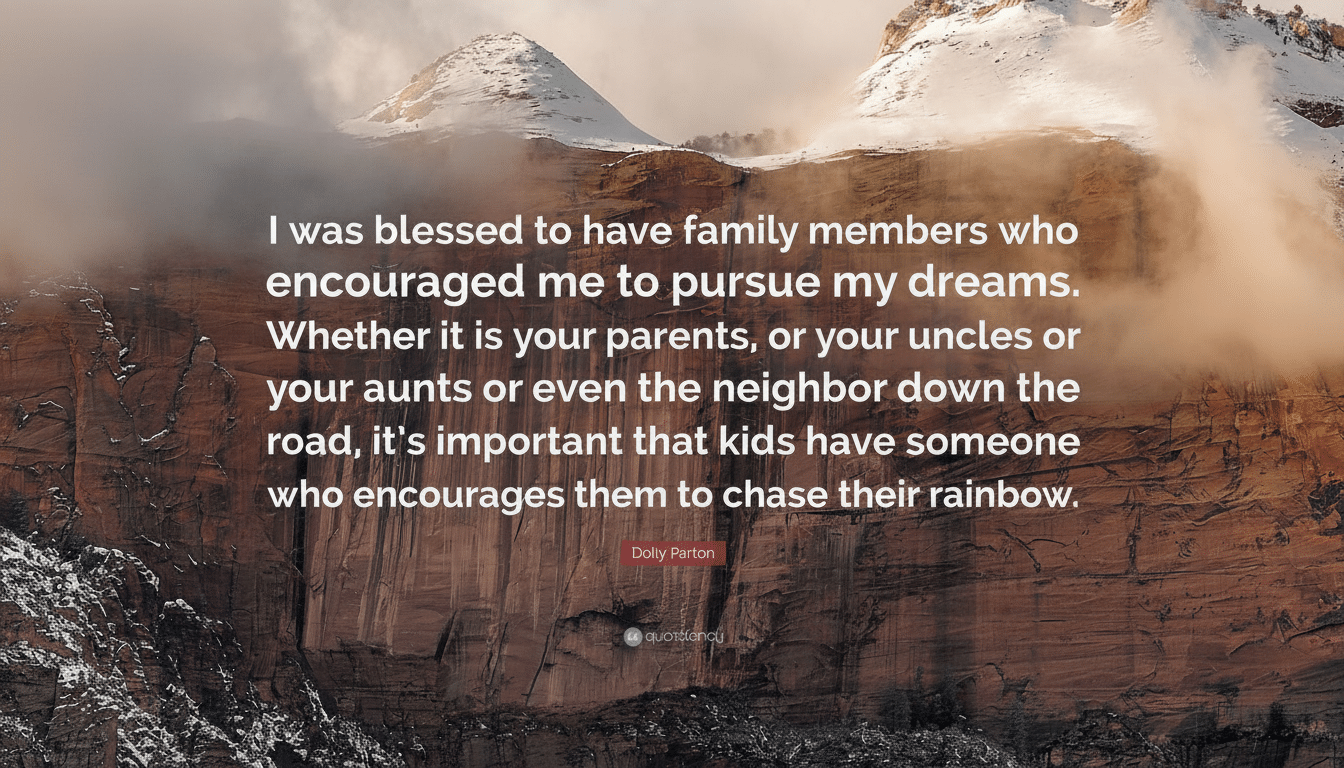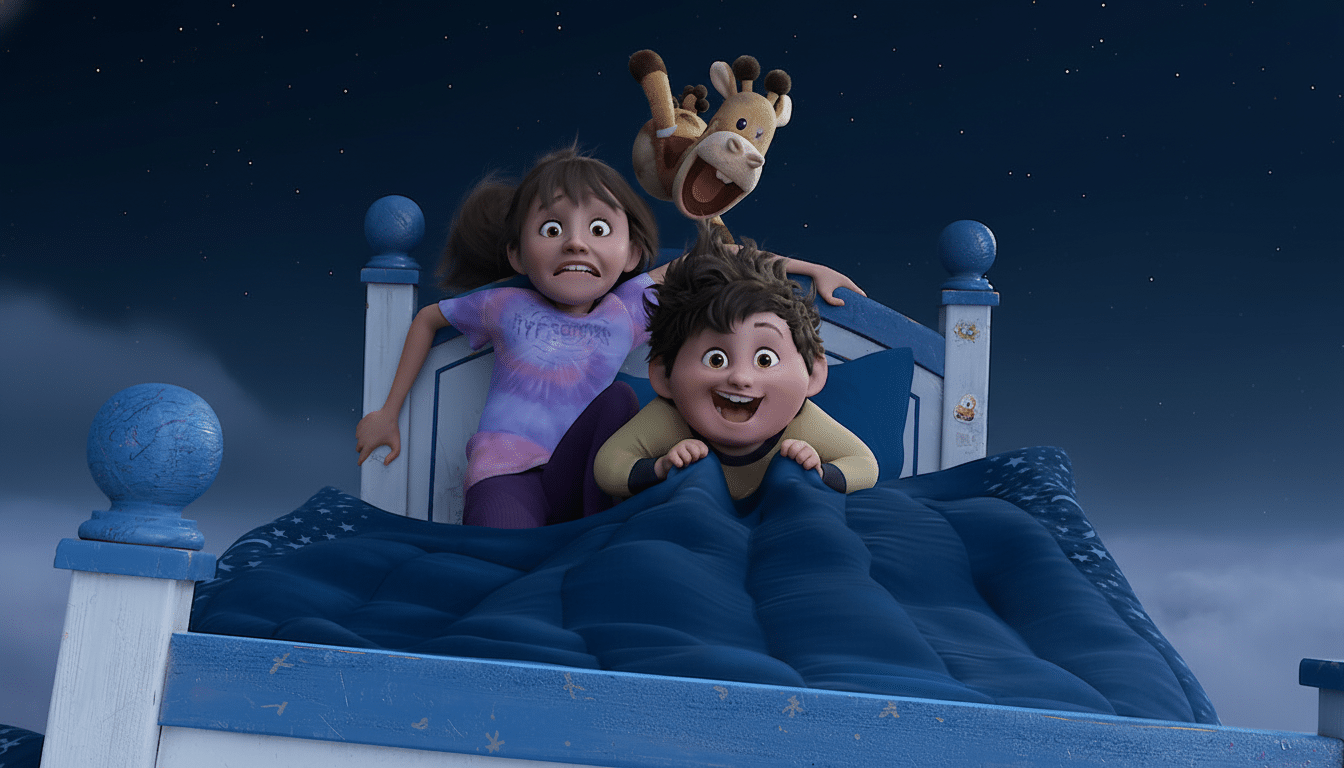In Your Dreams, on Netflix, is a rare family film that handles children’s fears about adult problems with nuance.
A bright, buoyant adventure about two siblings who negotiate a broken home through the surreal logic of dreams, it grafts candy-colored spectacle onto plain truths (about what it feels like when parents grow apart).

Story and Themes That Explore Family and Childhood Fears
The setup is elegantly simple. Stevie (Jolie Hoang-Rappaport), a fastidious older sister, and Elliot (Elias Janssen), her chaos-laden little brother, find an enchanted book that plucks them into their own dreamscapes. If only they can reach the Sandman (Omid Djalili), perhaps he can “fix” their family. That desire powers a lively search through lighthearted landscapes that metamorphose as rapidly as children’s ideas.
Below the gags and set pieces, Alex Woo holds a steady emotional compass as the director. The film isn’t big on easy bad guys: Stevie and Elliot’s parents (played by Simu Liu and Cristin Milioti) are loving, flawed, quietly swamped. That restraint is striking. Rather than scripted blowups, there are open-ended, half-uttered conversations that children overhear and then take in. The story is a light-fingered reimagining of Stevie’s perfectionism and Elliot’s messiness as two different strategies for coping with the reality that life is fundamentally uncertain — something that might feel achingly true to many families.
It’s in line with what child-development experts have long observed. The American Psychological Association reports that children can sense parental stress and are likely to try to intervene, or even to “solve” situations they have no control over. The film responds to that impulse with empathy, allowing for the possibility that love might endure when logistics become unwieldy.
Visual Design and Worldbuilding Shape Vibrant Dream Realms
Woo, a Pixar veteran, brings precision to visual storytelling that is instantly apparent. The siblings’ real world is muted, slightly cramped; their imaginary worlds are filled with saturated color and sensorial detail. Plus, it looks like a toy aisle come to life (Breakfast Town — a feudal kingdom governed by sentient pastries and bacon). A river tour leans into theme-park kitsch without sacrificing personality.
One of the best tricks of the film is how joy curdles into anxiety. When panic soars, “nightmare weather” descends, shaping sugar into decay and transforming sweet treats into crumbly ghouls. It’s a smart, child-friendly metaphor for how rapidly worries can overtake even the happiest daydream. In these transitions, you can feel Woo’s story-art roots: Every gag serves character, and every visual shift clarifies an emotion.

There are also cine-literate flourishes — blink-and-you’ll-miss-them riffs on classic horror and anime — that adults can savor as well. The result is a series that competently plays in Netflix’s animation lane, in which family-targeted titles frequently ascend through viewership charts; Nielsen’s streaming reports commonly feature children and family series among the weekly leaders, reminding us that visual imagination can still lure households together.
Voice Cast Performances and Humor That Families Will Enjoy
Jolie Hoang-Rappaport lends Stevie a tight, nervous pulse without veering into brittleness; Elias Janssen’s Elliot is all fizzy curiosity. Simu Liu and Cristin Milioti sketch a lived-in relationship in microbeats — shared jokes that land a little flat, apologies that feel sincere but tired. As Sandman, the English-Iranian comedian Omid Djalili sandpapers whimsy with weary wisdom.
Scene-stealing is Craig Robinson as Baloney Tony, Elliot’s toy giraffe made raucous flesh. His snappy comebacks and ironic kid-like powers punch up the humor without derailing the tone. It earns its laughs legitimately, which is a boon in a marketplace where “family” so often means frantic. Jokes here emerge organically from character dynamics and the physics of the dream realm, not from random reference dumps.
What Families Can Expect From This Thoughtful Animated Film
In Your Dreams is blunt in its message: Kids aren’t responsible for their parents’ relationship. That may sound simplistic, but it does matter for real families. In fact, approximately 23% of children live with one parent, so the experience of family transitions is quite common. But the film’s generous, clear-eyed perspective, which holds that honesty and reassurance (not magical thinking) make children feel secure, is also apparent throughout.
It’s also a conversation starter. Groups like Common Sense Media point out that co-viewing stories about sensitive topics can improve family communication. The movie makes that easy: It’s only natural, after the credits roll, to ask kids what their “Breakfast Town” looks like or what their own “nightmare weather” feels like. The metaphors are strong enough to bear transporting from the screen into real life.
Final Verdict on In Your Dreams as a Family-Centered Gem
The feature debut of Kuku Studios announces a creative team at once crafty and caring. You can see the DNA of Woo’s Pixar tenure in it — sharply defined goals, ingeniously contrived set pieces, a cathartic third act — but In Your Dreams never feels like imitation. It earns its wonder; then it earns its wisdom, and in that way reminds families that love isn’t about being perfect but about showing up when things get tough. After a short stop in theaters, it reaches Netflix as an intelligent, repeatable watch for both kids and their accompanying parents or babysitters.

